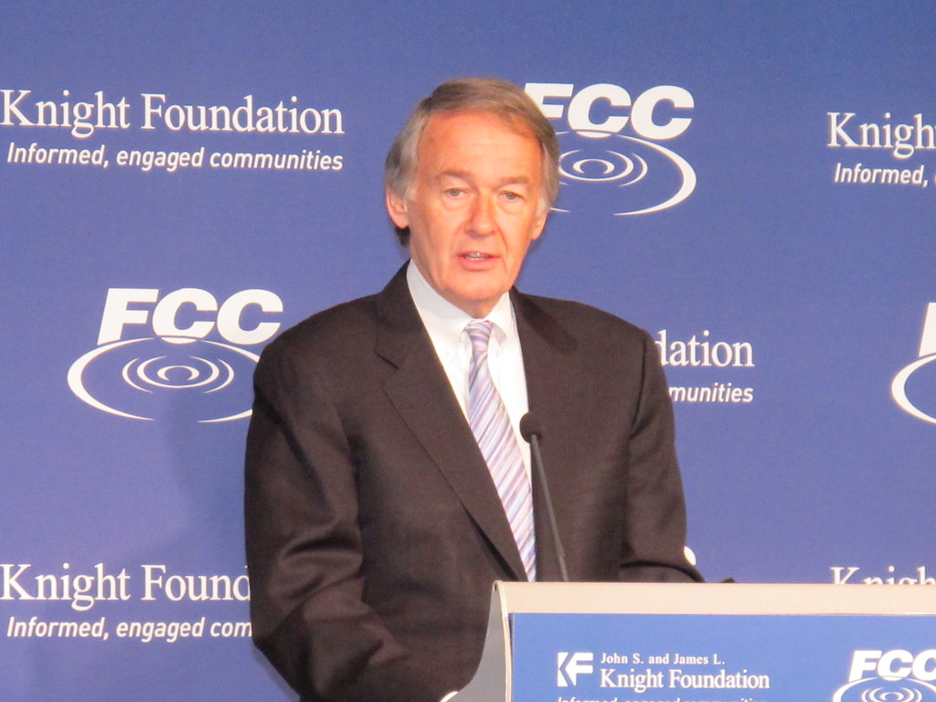Price Caps on Prison Calls, Facial Recognition Act Gains Momentum, Free State Foundation Calls for TCPA Updates
Federal Communications Commission Chairman Ajit Pai is urging state governments to impose price caps on prison phone calls, Ars Technica reported. Pai sent a letter to the National Association of Regulatory Utility Commissioners on Wednesday, saying that it was up to state governments to cap intrast
Jericho Casper

Federal Communications Commission Chairman Ajit Pai is urging state governments to impose price caps on prison phone calls, Ars Technica reported.
Pai sent a letter to the National Association of Regulatory Utility Commissioners on Wednesday, saying that it was up to state governments to cap intrastate calling prices because the FCC lacks the authority to do so.
Critics argued that Pai could do more, especially given that three years prior, he helped kill Obama-era FCC rules that limited the price of intrastate calls.
Shortly after President Donald Trump appointed Pai in early 2017, Pai instructed agency lawyers to drop the commission’s court defense of a cap on intrastate calling rates.
That action led to a June 2017 court victory for Global Tel*Link, a prison phone company, in its lawsuit against the intrastate cap.
Pai’s letter to NARUC noted that in the absence of FCC regulation, intrastate prices have far exceeded interstate ones, maintaining that the FCC was powerless to address the issue.
Momentum builds to prohibit government use of facial recognition technologies
The Facial Recognition and Biometric Technology Moratorium Act, introduced by Sen. Ed Markey, D-Mass., is increasingly receiving support.
“As the country grapples with its past and decides what type of nation we want to be in the future, a growing group of individuals and organizations are saying loud and clear that it’s time to stop the proliferation of technologies that invade our privacy and put vulnerable populations in harm’s way,” Markey said.
The act would prohibit the use of facial recognition and other biometric technologies by federal entities, as well as barring the use of federal funding to build biometric surveillance systems.
It would also ban the use of information collected by these surveillance systems in any judicial proceedings.
Support for the act has been growing, with new sponsors and endorsers speaking out daily against federal use of biometric technologies in policing and surveillance.
“Facial recognition technology is fundamentally flawed, systemically biased and has no place in our society,” said Rep. Ayanna Pressley, D-Mass.
Free State Foundation urges Congress to update Telephone Consumer Protection Act
The FCC reports that unwanted calls generate 60 percent of all consumer complaints received by the agency each year.
Robocalls have become so pervasive that they are drawing the Supreme Court’s attention, wrote Daniel Lyon, professor at Boston College Law School and member of the board of academic advisors at the Free State Foundation.
Three recent Supreme Court cases dealt with confusion surrounding different provisions of the Telephone Consumer Protection Act, a federal stature intended to protect consumers from unwanted robocalls, enacted in 1991.
Lyons argued that the text of the TCPA is awkward and has grown increasingly problematic, as highlighted by the trilogy of Supreme Court cases.
Lyons urged Congress to update the TCPA to reflect the realities of the modern telecommunications marketplace, recommending lawmakers consider focusing on technological solutions, rather than litigation, to protect American consumers.








